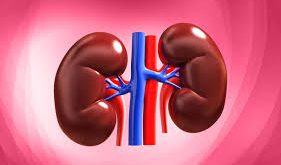Unexpected Diagnosis
It often begins with something seemingly insignificant—a small amount of blood in the urine, a sudden need to use the lavatory, or many night time treks to the loo. Many patients disregard these symptoms as an inconvenience, or age-related weakness. Unfortunately, for some, the final diagnosis becomes life-altering: bladder cancer.
The Not-So-Obvious Relationship Between Tobacco and Bladder
Tobacco use is commonly associated with lung and oral cancers. However, few know how strongly tobacco use—both smoking and chewing—affects the urinary system.
The compounds found in tobacco are processed by the body through the bloodstream. Eventually, the kidneys filter these poisons and deposit them in the bladder as urine, where they remain in contact with the bladder lining for extended periods of time. The outcome, over time, is damage to the bladder’s sensitive tissues, triggering mutations and the development of cancer.
The alarming reality is that while we have made some progress in warning people about the linkage of smoking to lung disease, its linkage to bladder health is still largely overlooked.
Unfortunately, the effects of tobacco use persist even after the habit is broken. Years of exposure can produce cellular alterations that become permanent. Many in India mistakenly believe that chewing makes tobacco “less harmful” and that quitting reverses the damage and this lack of awareness is costing lives.
The first indicators, including a little, irregular appearance of blood in the urine, or, a mild burning feeling do not startle people into seeking medical attention because these symptoms resemble typical bladder infections or age-related prostate disorders. Women are more likely to be misdiagnosed or dismissed, with symptoms being attributed to UTI. By the time the symptoms become persistent and disruptive, the cancer has usually progressed to an advanced stage.
Why This Is a Public Health Crisis in the Making
Tobacco consumption is deeply embedded in our society; reflected equally in small-town paan stores and high-end smokes in cities and across generations and socioeconomic backgrounds. Yet, while campaigns have addressed oral cancer and heart disease, bladder cancer is rarely mentioned in public health discourse on tobacco use.
The issue is particularly significant because urine-related symptoms are not commonly correlated with cancer and danger flags are ignored. People even visit practitioners before consulting a urologist. By then, valuable time is lost.
Bladder cancer drains emotions, finances and familial resources. Treatment options can include surgery, monthly check-ups and life-long monitoring.
What Can We Do about it?
We need to change the perspective from reaction to prevention; starting with awareness.
As a country, we must start discussing urinary symptoms more openly—not in medical settings alone, but in homes, schools, and workplaces. We must educate young people about smoking being harmful not only for the lungs, but also for other vital organs.
Doctors, particularly general practitioners, must routinely recommend urine test, or, ultrasound, to investigate for bladder cancer, in patients who present unexplained urine symptoms, especially patients with a history of tobacco use.
Equally, people need to be encouraged to pay attention to their own bodies. If blood appears in your pee, do not make assumptions. Seek medical advice. A ten-minute check-up can save you years of pain.
The Function of Support Systems
Bladder cancer is more than a physical ailment; it can erode self-esteem. Many patients, particularly those requiring surgery, or experiencing lasting changes in how they pee, struggle emotionally. In India, where cancer-related topics are still taboo, this might lead to isolation.
Support groups, counselling, and patient education will be extremely beneficial in the rehabilitation process. Families must also be inducted into the process; not only as caregivers, but also as champions for their loved ones.
Bladder cancer is not uncommon. It could stem from apparently harmless behaviour; such as a beedi after meals, a gutka package at work, or a cigarette to help pass the time. Over time, these actions can snowball—and the cost is frequently paid in silence.
But it does not have to be this way. With the appropriate information, early screening, and a commitment to taking urinary health seriously, we can alter the course of this disease.
(Dr. Boppana Sai Madhuri, Consultant, Medical Oncologist, HCG Cancer Center – Vijayawada)
 Newspatrolling.com News cum Content Syndication Portal Online
Newspatrolling.com News cum Content Syndication Portal Online






